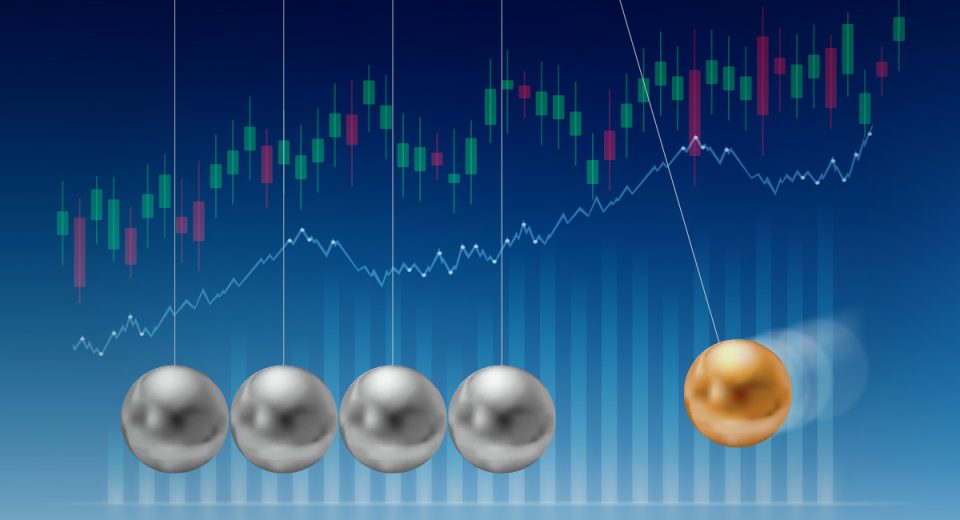Tips for Different Trading Styles

If you are new to trading, you know that a demo account is the most powerful tool at your disposal. This account allows you to familiarise yourself with the markets, try out all the different trading tools, and understand your trading psyche, all without needing to spend any real money.
Identifying your risk tolerance and mindset (trading psyche) can help you understand which trading style suits you the best. This is an important step in ensuring satisfying experiences in the financial markets. There are broadly five types of trading styles. Read on to know which one suits your personality the best.
-
Scalping
Scalpers are traders who attempt to capture small market moves throughout the day with the aim of the cumulative earnings being higher than the losses. This means they need to enter and exit positions quickly. So, they might hold positions open anywhere from mere seconds to a few minutes.
What to keep in mind
If you are impatient, your personality might align with scalping, especially if it is too stressful to wait long to see the results of your trades. Also, make sure you choose a broker that gives you access to powerful trading tools and lightning-fast execution, so that you can capitalise on even the smallest price moves.
-
Day Trading
Similar to scalping, day trading involves executing frequent trades through a single day. However, the positions are held open longer than in scalping, ranging in duration from a few minutes to a few hours. All positions are closed by the end of the trading day, such that there are no positions open overnight.
What to keep in mind
A day trader looks at the price action for each day to determine a way to implement (or not) their strategies after analysing the conditions on that specific day. To become a day trader, you need to be disciplined, patient, and a forward-thinker. Once again, robust tools for technical and fundamental analysis and quick order execution are key to capturing market opportunities.
-
Swing Trading
This is a medium-term trading strategy, unlike the short-term ones discussed earlier. Swing traders hold positions open anywhere between a few days and a few weeks. Since positions are likely to be held overnight, swing traders need to understand the overnight or swap fees charged by their broker.
What to keep in mind?
If you want to be a swing trader, remember to first practise on a demo account to master this trading style. Also, remember to keep an eye on both short-term and long-term market trends, and stay updated on the latest news to make informed decisions.
-
Position Trading
Position traders hold trades for the long term, ranging from several weeks to months and even years. This style has the longest holding period among the five trading styles discussed here, which means traders are less concerned about an asset’s short-term price fluctuations but highly focused on its longer-term trends. This is why position traders rely on fundamental analysis as much as they do technical analysis. By keeping an eye on the economic calendar or dates for earnings releases by companies, they can plan their trades well in advance.
What to keep in mind?
If you have a lot of patience and don’t have the time to monitor the markets frequently, position trading might be right for you. Also, check if you are comfortable with your money being locked up for longer periods.
-
Algorithmic Trading
Too busy with your day job but would still like to maximise on market opportunities? Algorithmic trading could come to the rescue. Here, computer programmes will execute trades on your behalf, based on the parameters you set, such as the specific asset, price points, and timeframe. Algo trading not only frees you from having to constantly monitor the markets to capture viable opportunities but also takes emotions out of the equation.
What to keep in mind?
If you are leaving trading decisions to AI, make sure you set all parameters carefully. The programme cannot think for itself. These parameters will trigger open and close orders for your positions. So, use leverage cautiously and remember to include risk management measures, such as stop-loss and take profit, with every order.
Can You Switch Your Trading Style?
For satisfying trading experiences, you not only need to choose a trusted broker that offers you the best trading tools and demo account, but also choose the trading style your personality aligns best with. However, your trading psyche and the financial markets are dynamic in nature. As you grow as a trader, you might wish to try out different styles. Don’t forget to practise each one on a demo account before trying them out on the live markets.
To Sum Up
- The basic trading styles include scalping, day trading, swing trading, position trading, and algorithmic trading.
- Scalping is a short-term style that requires quick decision-making to place frequent trades throughout the day.
- Day Trading is also a short-term style where several trades are placed throughout the day but for longer durations than for scalping.
- Swing traders hold positions for days or weeks to make the most of market trends.
- Position Trading involves holding trades for the long term, focusing on fundamental analysis rather than short-term price fluctuations for decision-making.
- Algorithmic Trading relies on computer programs to capitalise on market moves triggered by economic, political, and other news events.
Disclaimer
All data, information, and materials are published and provided “as is” solely for informational purposes only and are not intended nor should be considered, in any way, as investment advice, recommendations, and/or suggestions for performing any actions with financial instruments. The information and opinions presented do not take into account any particular individual’s investment objectives, financial situation, or needs, and hence do not constitute advice or a recommendation concerning any investment product. All investors should seek advice from certified financial advisors based on their unique situation before making any investment decisions by their personal risk appetite. Blackwell Global endeavours to ensure that the information provided is complete and correct, but makes no representation as to the actuality, accuracy, or completeness of the information. Information, data, and opinions may change without notice and Blackwell Global is not obliged to update on the changes. The opinions and views expressed are solely those of the authors and analysts and do not necessarily represent those of Blackwell Global or its management, shareholders, and affiliates. Any projections or views of the market provided may not prove to be accurate. Past performance is not necessarily indicative of future performance. Blackwell Global assumes no liability for any loss arising directly or indirectly from the use of or reliance on such information herein contained. Reproduction of this information, in whole or in part, is not permitted.




